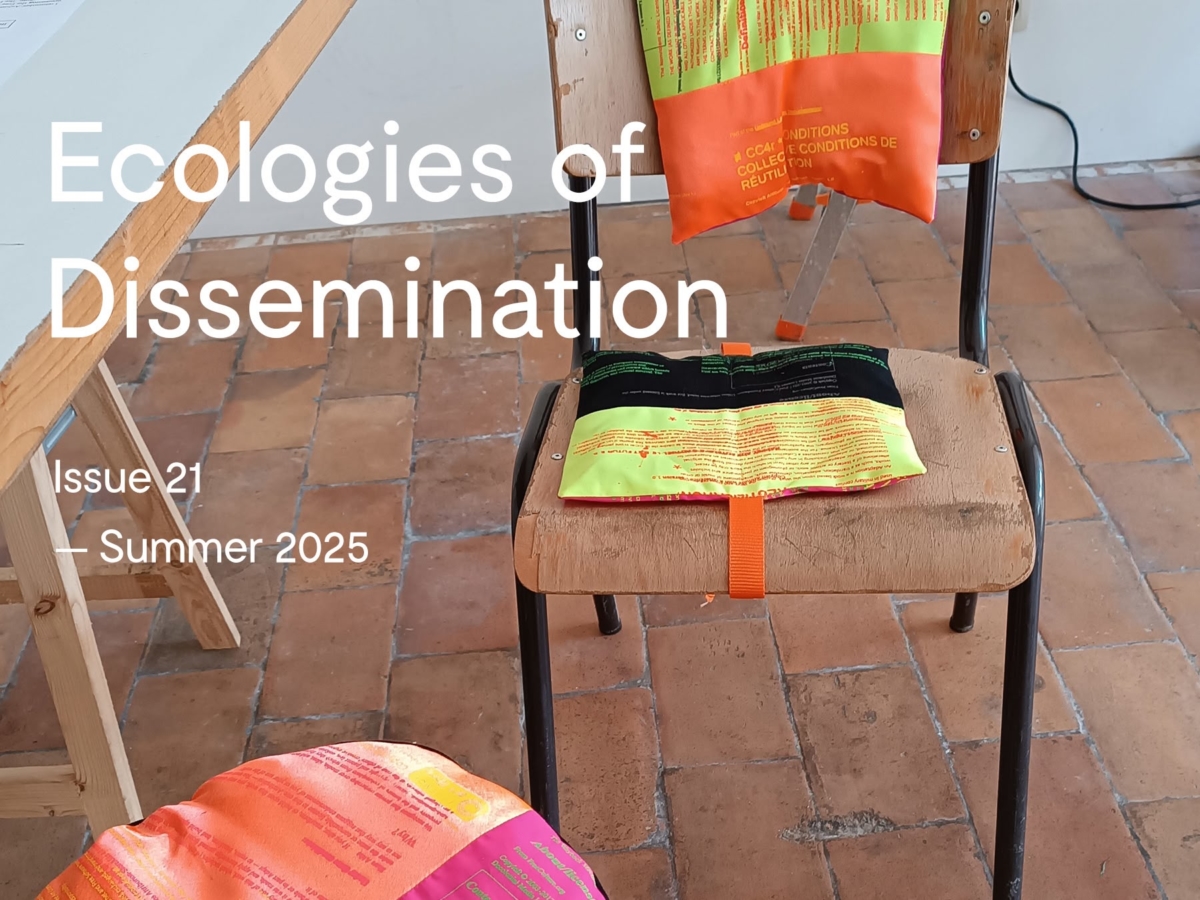Launch of «Ecologies of Dissemination»
PARSE Journal Issue #21

This issue of PARSE Journal (Platform for Artistic Research Sweden) is for anyone who engages in cultural production: those practising through citations, appropriations, referencing, fan-fiction, piracy and other forms of reuse; for those who recognise the tensions that emerge when the conviction that cultural work is collectively produced and owned is brought in conversation with power asymmetries, inequities and appropriative moves grounded in intersecting forms of oppression. As such, the issue highlights the need for solidarity in sharing and reusing work and proposes forms of reuse that strengthen modes of collective practice.
Ecologies of Dissemination sets out to understand, articulate and develop tools to support the situated and relational character of collective artistic practice. In conversation with practitioners and thinkers, collectives and individuals, currently based in Europe, US and Mexico, we continued to reflect on ways of taking into account that open means different things in different contexts and that knowledge practices are situated in contingent social and historical conditions. These reflections-in-practice on how to care for the conditions of cultural production while fostering careful dissemination seem extra urgent now the rise of AI tools seems to both obliterate authorship practices as we knew them and at the same time trigger a defensive return to conventional copyright.
With this issue, we provide hands-on inputs and tools—prompts, cases, conversations, sample documents, questions, project nodes and further references—that were developed over the last three years with a community of practices across different fields.
The different working materials help navigate a range of questions: how can we support relational modes of working? How to allow for discomfort, when the needs of different reusers may not align? How to make the conditions of reuse explicit and legible to others? If we let go of the idea of asking and giving “permission”, could this unidirectional mode be replaced by relational practices such as reusing and being reused, or the mutuality of touching and being touched? How to reuse in solidarity, considering the intersectional impacts of, for example, sexism, racism and ableism on what it means to disseminate, share and reuse?